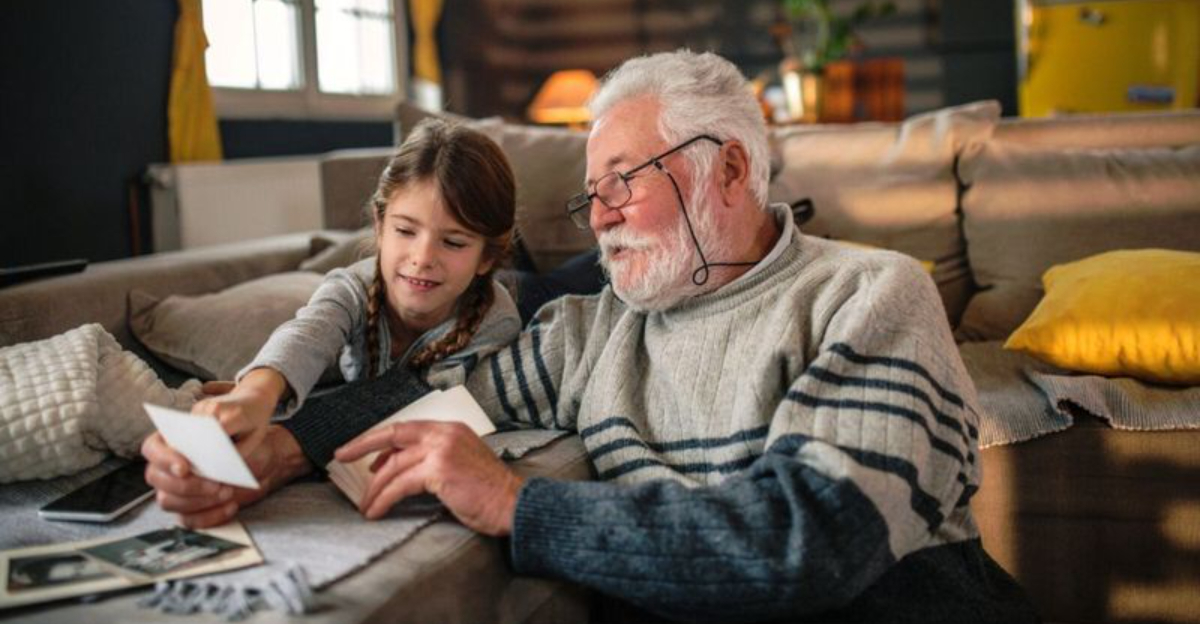Language evolves over time, and certain phrases that were once commonplace can date you if you’re not careful. Here are 15 phrases that Boomers might want to reconsider using to avoid sounding out of touch.
1. “Roll up the window”
The phrase “Roll up the window” harks back to a time when car windows were manually operated. With power windows being standard for decades, this expression can sound outdated. A simple adjustment, like saying “Put the window up,” aligns with the current technology and keeps communication clear. It’s a small change, but one that reflects an awareness of modern conveniences, making everyday interactions feel more current.
2. “Let’s consult the encyclopedia”
“Let’s consult the encyclopedia” is a phrase from a pre-digital age, when physical books were the primary source of information. Now, with the internet at our fingertips, information is accessed in seconds, making encyclopedias feel like relics. Instead, saying “Let me look that up real quick” reflects the speed and accessibility of today’s information age. This update embraces technology, making the speaker seem adaptable and in tune with the times.
3. “You sound like a broken record”
“You sound like a broken record” calls to mind the days of vinyl, where a scratched record would endlessly repeat. For younger audiences who may not have experienced this firsthand, the phrase can lose its impact. Instead, simply saying “You’re repeating yourself” is straightforward and universally understood. It’s an easy swap that ensures clarity across generations, maintaining effective communication without the need for outdated references.
4. “I’ll tape that show”
The notion of “taping a show” recalls the era of VHS, where recording TV was a cumbersome process. Today’s technology offers digital solutions, making recording seamless and efficient. Saying “I’ll DVR/record that” not only reflects current practices but also conveys an understanding of how media consumption has evolved. It highlights an ability to adapt, resonating with both those who remember tapes and those who have only known digital recording.
5. “Back in my day…”
“Back in my day…” is often the precursor to tales of the past that can make the speaker seem disconnected from the present. Embracing change is key, and sharing memories with a sense of growth rather than nostalgia can be more engaging. This phrase can inadvertently create a barrier between generations. Instead, consider sharing memories in a way that invites conversation, such as saying, “Times have changed, but here’s what I remember…”. This approach opens up dialogue and shows appreciation for both past and present.
6. “Don’t touch that dial!”
“Don’t touch that dial!” is a phrase that once applied to televisions with physical dials, long replaced by remotes and channel numbers. Updating this to “Don’t change the channel!” reflects the current experience of watching TV, where remote controls have dominated for decades. This simple change keeps the language relevant, bridging the gap between generations and ensuring the essence of the message is clear without the historical baggage of outdated technology.
7. “It’s not rocket surgery”
The quirky mix-up “It’s not rocket surgery” combines “rocket science” and “brain surgery,” both known for their complexity. While meant humorously, it can come across as outdated and confusing. Instead, saying “It’s not that complicated” delivers a clearer message. This keeps the conversation accessible, eliminating the unnecessary complexity of the mixed metaphor, and replacing it with clarity and a touch of humor that’s relatable for all ages.
8. “Make a long-distance call”
The term “long-distance call” hails from a time when calling outside local areas incurred extra charges, a concept foreign to many today. With unlimited calling plans now the norm, it’s more fitting to just say “I’ll call them.” This change reflects the evolution of communication and the normalization of what was once a special and costly service, showing an understanding of today’s telecommunication landscape.
9. “Be kind, please rewind”
The phrase “Be kind, please rewind” evokes memories of video rental stores, where rewinding tapes was a courtesy. With streaming services replacing physical media, this phrase has become obsolete. Instead, “Don’t forget to return it” is more applicable, especially if physical rentals are still in use. This shift acknowledges the change in how we consume media and maintains politeness without the outdated reference to VHS tapes.
10. “You’ve got mail!” (in the AOL voice)
“You’ve got mail!” invokes the early days of email and AOL, a nostalgic memory for some but irrelevant for digital natives. Today, notifications come from all directions, making “You got a notification” a more accurate and modern acknowledgement. Changing this phrase shows adaptability and an understanding of how communication has evolved, staying current while respecting the origins of digital communication.
11. “Let’s go to the record store”
“Let’s go to the record store” might sound nostalgic to some, but with the rise of digital music, it’s slightly out of step with modern trends. Saying “Let’s check out the vinyl shop” updates the language while acknowledging the resurgence of vinyl as a trendy, retro choice. It bridges the gap between vintage charm and contemporary cool, appealing to music lovers of all ages.
12. “I’m going to Xerox this”
“I’m going to Xerox this” uses a brand name as a verb, a practice that has faded since the ’90s. Today, the phrase “I’ll make a copy” is more universally understood and reflects a broader range of technologies and brands. This change not only modernizes the language but also ensures clarity and understanding across different generations and cultures, who may not associate Xerox with copying.
13. “Don’t take any wooden nickels”
The saying “Don’t take any wooden nickels” is a relic from the past, originally meant to caution against scams. In today’s world, it sounds antiquated and obscure. Replacing it with “Be careful out there” conveys the same cautionary message in a more straightforward and relatable way. It’s an update that resonates with today’s listeners, maintaining the intent while shedding the historical weight.
14. “Hold your horses”
“Hold your horses” is an old-timey phrase that can feel out of place in modern dialogue. Instead, “Hold on a sec” is quick, to the point, and more likely to be used by any generation today. This change makes the expression more relatable and ensures the speaker’s intention is clear without conjuring images of horses and carriages, making it a practical update for today’s fast-paced conversations.
15. “That’s the cat’s pajamas!”
“That’s the cat’s pajamas!” is a piece of 1920s flapper slang that doesn’t quite translate to 2024. Saying “That’s awesome!” is direct and universally understood, capturing enthusiasm without the vintage twist. This modernized expression of excitement keeps the sentiment alive while ensuring the speaker sounds contemporary and relatable, bridging the gap between classic charm and present-day language trends.















